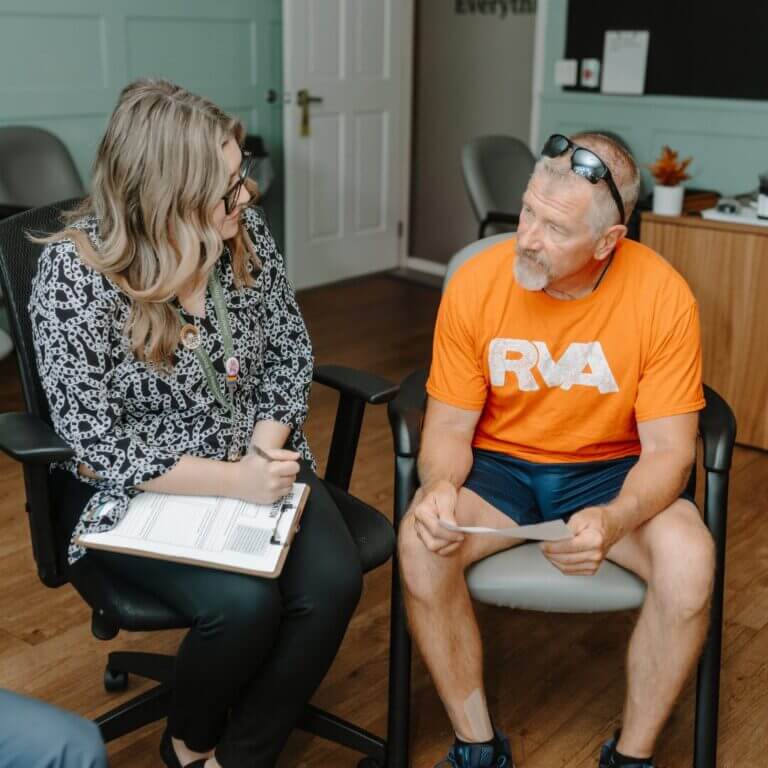I need help. Those three little words can be extraordinarily vulnerable and can feel extremely uncomfortable. Why is it so hard? Unfortunately, so much of our culture has led us to believe that asking for help is weak, or that we aren’t capable or able to handle our life if we need support. So, how do we do it, especially if we don’t have friends, a strong peer network, or established support systems in place?
Ways to Overcome Fear, and Seek Out Support
- Brainstorm people or resources that could potentially be helpful. Start slow, especially if you are feeling vulnerable connecting in person. Hop online first if it’s easier, and find forums, group chats, or blogs that address your needs, or could provide assistance. Attend a recovery meeting, connect with a sponsor or counselor, or seek out a community resource center or meet up designed to support shy folks, introverts, or those struggling to ask for help.
- Remind yourself that the truth is, even the most solitary and self-sufficient people need help sometimes. Think about the people in your life. Do you truly believe they got where they are without help? Trying to normalize the giving and receiving of help might make it easier to seek it out. Also, remember that a lot of people become helpers because they received help, and they want to pay it forward. Try not to make assumptions and instead, let people show you their intentions.
- Look at how the statement, “I can do it alone,” or “I don’t need help,” might actually be a defense mechanism, that comes from pain, disappointment, or heartbreak in your life.
Reflect on your past either by yourself, with a sponsor, or with a counselor.
When have people let you down, or not shown up for you?
Could your experience be part of the reason it’s so hard to ask for help?
What other pains and traumas have gotten in the way of you asking for help?
Ask yourself, what would it be like if I tried something new, and asked for help? - Address feeling like a burden. When did you learn it wasn’t safe or okay to ask for help?
What happened that led you to believe that asking for help was weak or shameful?
Look at what may have been barriers to asking for help in the past, ego, shame, self-loathing, fear of letting people down? - Connect with members of your family that you trust and lean on them for support. Extend an invitation to spend time together. Be with people that love and support you and that want to see you succeed. Take your time with your words, speak from your heart, and ask for help. Express how hard it is to ask for help, and how scared you feel. Naming our feeling is a strategy to break the tension, diffuse the difficulty, and may lead to a more candid and compassionate conversation.
- If you don’t have friends to call upon, try not to feel discouraged. Now is an opportunity to define new helpful support systems. Attend recovery groups, join a sports team or a book club, take a cooking or pottery class, or go to spoken word events. Set manageable and realistic goals in connecting with people. The first intention can be just to show up, and then a second goal can be to connect with a new person.
- Volunteering is a great way to find peers and get connected to a meaningful group of people that could support you. This might be an especially helpful idea if it is hard to receive help without giving something in return. Volunteering and receiving support will create a relationship of reciprocity. It can also boost self-esteem if you feel good about the work you are doing to help your local neighborhood or community.
- If it still feels hard to ask for help for yourself, think about what you will do with the tools, resources, and support you receive. How can you use your life to help others?
What information or lessons can you share with others? Will you help others, as you have received help? Use this for motivation. - If someone says no, and that they aren’t able to help you, see it as a limit and a boundary, and don’t take it personally. Limits and boundaries don’t mean that someone doesn’t care about you, it simply means that they were honest with what they could do. That honesty is something to be appreciated, as it could prevent disappointment and heartbreak down the road.
- Remember to be clear, realistic, and open-hearted when you are asking for help.
Help can look like listening, sharing a resource, giving or receiving advice, holding space, or drawing from experience. Help can be simply being there, help can be checking in, help can be words of encouragement, help can be an errand, help can be love and support. - Asking ourselves for help is an effective and excellent practice to stay in tune with ourselves and what we truly need. We can ask ourselves to hold on, to keep going, to stay connected and committed, and to reach out to others during difficult times.
Sometimes the strongest and the bravest thing we can do is ask for help, and it can be the most beautiful gift we give ourselves. Never forget, you deserve all of the support, help, and encouragement you need. Is it time for you to ask for help?
At Ashley Addiction Treatment, we are here to help you heal from substance use, find empowering and healthy resources, and develop sustainable support systems. We are committed to walking the path of recovery by your side and will provide comprehensive and therapeutic support every step of the way. You deserve to feel confident and proud when you seek help, support, and guidance. You are worth everything you want.
Our peaceful campus is located on the banks of the Chesapeake Bay, in Northern Maryland. For more information, or to take the next steps, contact us at 800-799-4673.




